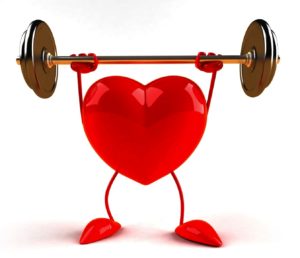Cardiovascular Health in Youth Sports
Most people do not associate heart disease or cardiovascular health issues with youth, however, the recent death of Smoky Hills High School Freshman has brought this topic to the front of our mind. It is with deep sorrow and condolences that we seek to address this topic in this blog post.
Studies have shown that cardiac death among athletes is not very common. The American Academy of Pediatrics estimated that 2,000 people under the age of 25 die from sudden cardiac arrest in the United States every year. Although this number is relatively low in comparison to the total population, it is important to examine what coaches and players can do to identify any risks and avoid such tragedy.
ECG screenings
ECG or electrocardiogram is a test that checks for problems with the electrical activity of your heart. An ECG is able to detect abnormalities of the heart and through analyzation can be an early indicator of heart problems such as ventricular hypertrophy, Myocardial Infarction and more.
In Texas and South Carolina, bills have been proposed that would mandate ECG screenings for all public high school athletes and New Jersey recently passed a law that would make cardiac health assessment mandatory during wellness exams for all children under the age of 19.
The hope is that more states will take cues from these regions and start to introduce similar bills to protect young athletes from unexpected heart problems induced by participating in sports.
Family Health History
Knowing your family health history is incredibly important for all people. There is a reason that every doctor’s office or emergency room asks questions specific to the patient getting treated AND about the health history of the patient’s family. Many heart related issues are genetic and knowing the health issue can help doctors to accurately diagnose certain diseases early on that may not be detected in an ECG or other test.
Acknowledging Current or Past Discomfort
Oftentimes, individuals see discomfort as normal and temporary and for most people this can be true. It is natural to expect some discomfort when exerting yourself in physical activity, however, frequent symptoms such as heart discomfort or fainting are something to pay attention to. Athletes who experience these symptoms should be examined by a cardiovascular expert who can perform further tests to identify any serious health issues that could lead to serious injury or sudden cardiovascular death.
Every Heart
Every Heart is a non-profit organization in Denver that is dedicated to detecting and preventing cardiovascular problems in youth.
Every Heart offers the following tests:
ECHOCARDIOGRAPHY (Echo)
- DESCRIPTION: A 15-minute ultrasound of the heart muscle and valves
- DETAILS: Determines the thickness, compliance, and size of the heart chambers and assesses the anatomy of the heart and its valves
- LOOKING FOR: Enlarged Hearts, Holes, Leaky Valves and Muscle Stiffness
ELECTROCARDIOGRAM (EKG)
- DESCRIPTION: A 5-minute test using electrodes on the wrists, ankles, and chest
- DETAILS: A measurement of the electrical impulses of the heart
- LOOKING FOR: Cardiac Arrhythmia, Inflammation, Abnormal Blood Vessels
BLOOD PRESSURE ASSESSMENT
- DESCRIPTION: A three-part blood pressure reading, at rest and under simulated mental stress
- DETAILS: A unique stress and blood pressure assessment, designed to detect the presence of stress factors that trigger heart attack, stroke, and heart failure
- LOOKING FOR: High Blood Pressure, Abnormal Stress Response
CAROTID INTIMA MEDIA THICKNESS (C-IMT)
- DESCRIPTION: A 10-minute ultrasound of the carotid arteries in the neck
- DETAILS: A measurement of the thickness of the interior lining of the carotid artery, the breeding ground for potentially deadly plaque.
- LOOKING FOR: Prematurely Thick Arteries, Inflammation, Carotid Plaque

